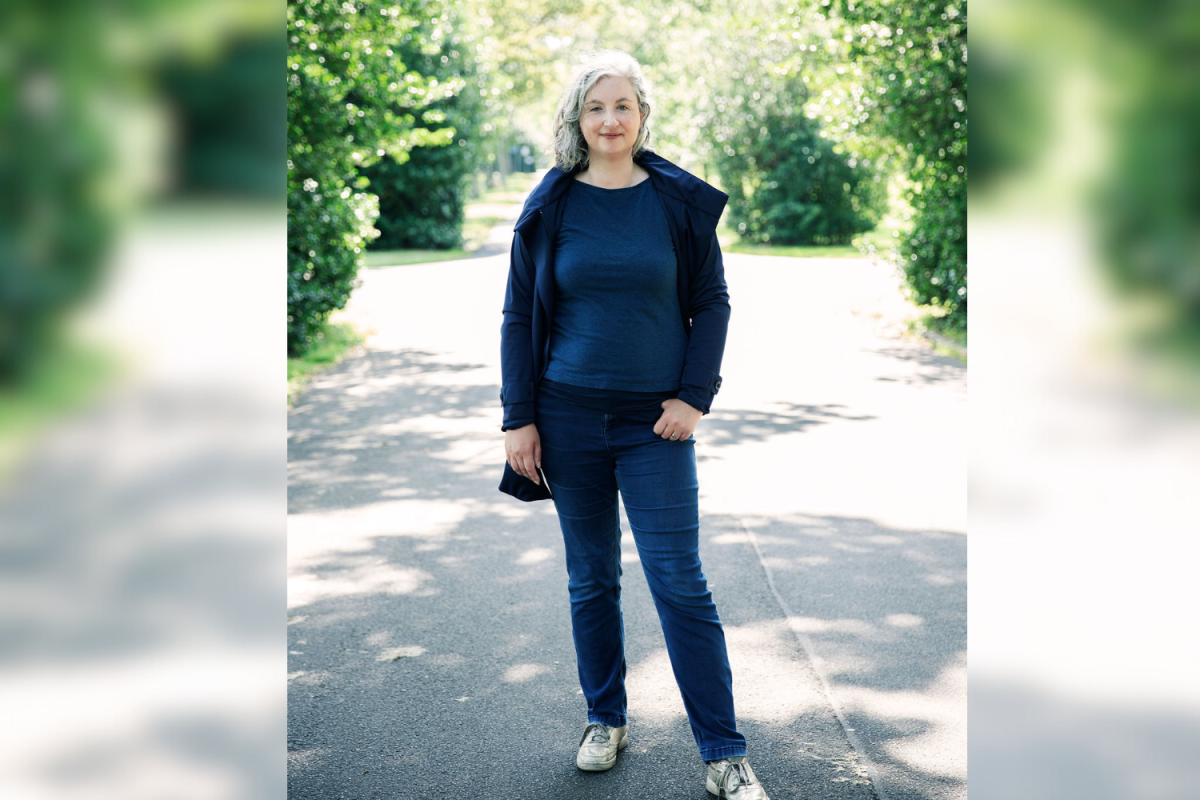Walking at least 10,000 steps a day to support a healthy lifestyle has been touted as an important goal for some time—but what impact does walking thousands of steps a day really have on your life?
From London to New York, people are taking up the challenge of walking more, and many of them are going well beyond the 10,000 steps mark, with more aiming for 20,000-25,000 steps a day.
A study published in the European Journal of Preventive Cardiology last year showed that walking at least 3,967 steps a day reduces the risk of dying from any cause, while walking 2,337 steps a day reduces the risk of dying from cardiovascular disease. Another 2019 study published in the journal JAMA Neurology found that around 8,900 steps per day appeared to slow rates of cognitive decline and brain volume loss in people who were at high risk.
Research shows that Americans took about 600 fewer steps per day after the start of the COVID-19 pandemic, and this decline has persisted. But four keen walkers told Newsweek how making the extra effort to reach their goals has changed their lives.
'I've Lost 70 Pounds'

When Kathleen Dorsey Sanderson, 38, from American Fork, Utah, suddenly developed dizzy spells she was inspired to make a change.
"If I sat down, I'd just shake, and the dizziness would get worse," Kathleen told Newsweek. Concerned about her health, she sought medical advice, only to be diagnosed with high blood pressure and prescribed medication. Determined to take control of her health, Kathleen decided to incorporate walking into her daily routine, alongside a commitment to healthier eating habits.
Starting with a modest goal of 10,000 steps a day, Kathleen soon found herself surpassing her initial target with ease, eventually challenging herself to walk an impressive 20,000 steps daily.
"It probably took me 3-4 months to consistently do 20,000 steps a day," Kathleen shared, reflecting on her gradual progress. Despite facing challenges such as dizziness triggered by other forms of exercise, Kathleen discovered that walking not only alleviated her symptoms, but also became her preferred form of physical activity.
As Kathleen's dedication to walking grew, so did her physical and mental well-being. "Ever since I started doing the 20,000 steps a day, and eating healthier, I've lost 70 pounds."
As well as weight loss, she is now completely free of high blood pressure medication and still prioritizes her daily walks, starting her mornings with a brisk four-mile walk to ensure she hits her 20,000 step target.
'It Makes Me Happy'

Further north, in Ontario, Canada, 18-year-old Freddie has been making a conscious effort to average around 20,000 steps a day. Since starting his own walking journey, he has discovered the therapeutic powers of walking.
"It is a great hobby for me," Freddie told Newsweek. "At first I did 7,000-10,000 steps a day, then increased to 12,000, then 15,000, then 20,000. I started in spring as the weather started to get nice so it was pretty easy to walk, but I did slowly add more and more to my route."
Freddie started walking because he was suffering from an eating disorder, with the aim of burning calories. But as he started to get better, he found joy and solace in walking. As he slowly built up his endurance, Freddie found that walking not only helped him stay physically active, but also provided him with a sense of freedom and control.
"I feel happy going out walking because I can explore all around my city and cool forests and stores and neighborhoods. It makes me happy and is also a great way to keep healthy," Freddie said.
'It's Made a Significant Difference in My Life'

Alex Sergent is a 40-year-old Londoner who averages between 12,000 to 17,000 steps a day. For Alex, walking isn't just about physical exercise; it's a lifeline to health, happiness and rewards.
"It's made a significant difference in my life as it's given me a clear physical goal every day," Alex told Newsweek. "I do the daily steps on top of regular weight training and calisthenics, which has helped bring my metabolic age down to 29."
'It Boosted My Mental Health'

In Edinburgh, Scotland, Sophy Dale, 49, has also experienced the transformative power of walking in her life.
"The difference has been massive," she told Newsweek, explaining that she currently aims for 12,000 steps a day.
Sophy began concentrating on walking to overcome post-concussion syndrome after a fall. Struggling with fatigue and stamina issues, Sophy turned to walking to regain her physical and mental well-being.
Despite the difficulties posed by harsh Scottish winters, she persisted in her walking routine, breaking down her walks into shorter sessions throughout the day.
"Apart from building my stamina and fitness, and boosting my mental health, there have been so many other benefits. I really appreciate spending so much time in nature every day," Sophy explained. "But probably the biggest benefit is that I run a creative business, as a copywriter, and walking is hugely beneficial for creativity."
Lindsay Bottoms, a reader in exercise and health physiology at the University of Hertfordshire, previously told Newsweek: "Walking can reduce the risk of developing chronic illnesses such as dementia, and certain cancers. In some cases, it helps improve health conditions such as type 2 diabetes."
"I sometimes take work calls walking; obviously, this depends on what you do and the type of meeting you are having. I walk the dogs first thing in the morning and last thing at night. I try and do the walk in the evening before I sit down, as I know as soon as I sit, I will struggle to get back up! If you can, park your car slightly further away from the office or from the shop so you get some more steps in."
Uncommon Knowledge
Newsweek is committed to challenging conventional wisdom and finding connections in the search for common ground.
Newsweek is committed to challenging conventional wisdom and finding connections in the search for common ground.
About the writer
Alice Gibbs is a Newsweek Senior Internet Trends & Culture Reporter based in the U.K. For the last two years ... Read more
To read how Newsweek uses AI as a newsroom tool, Click here.






